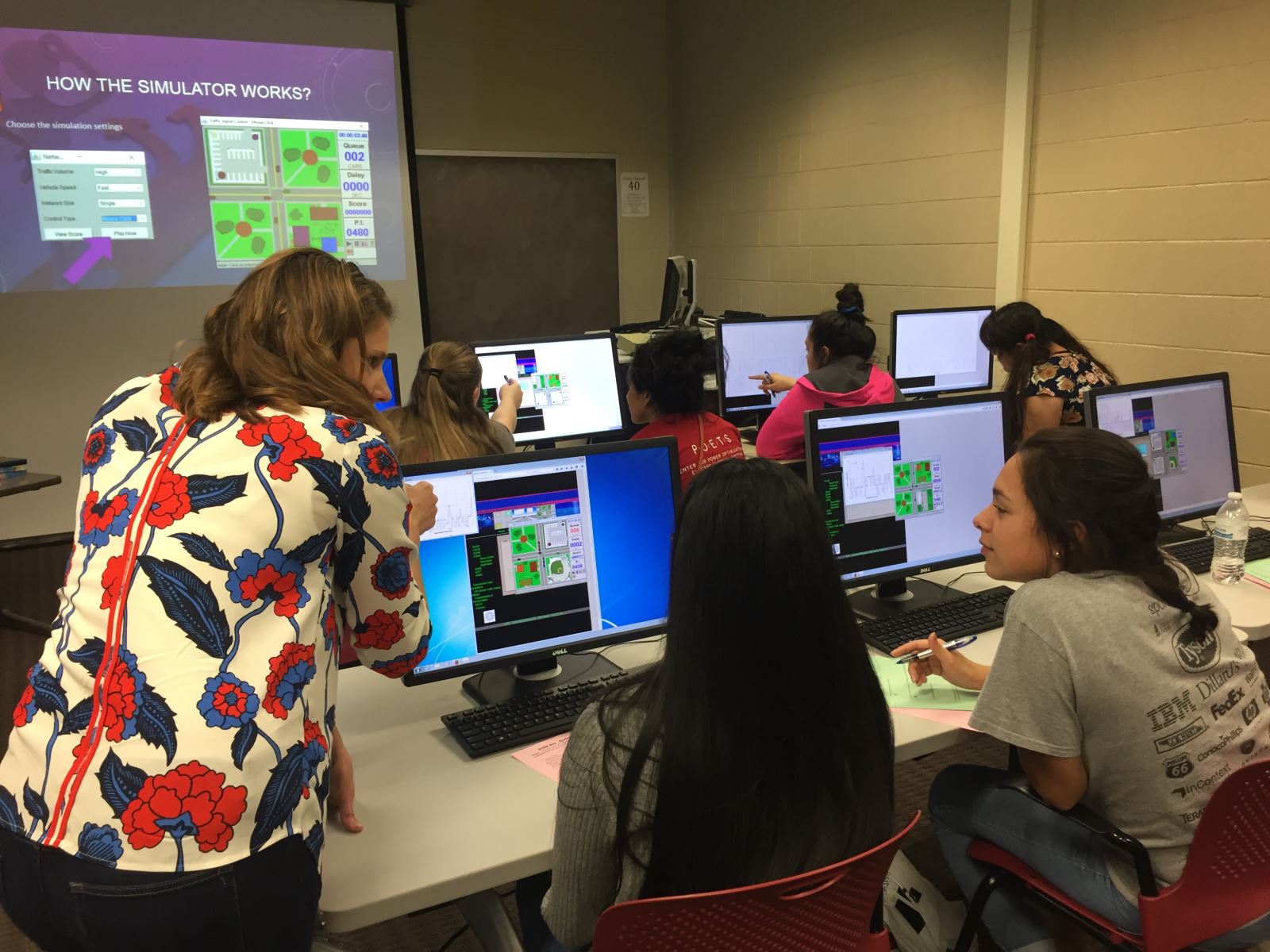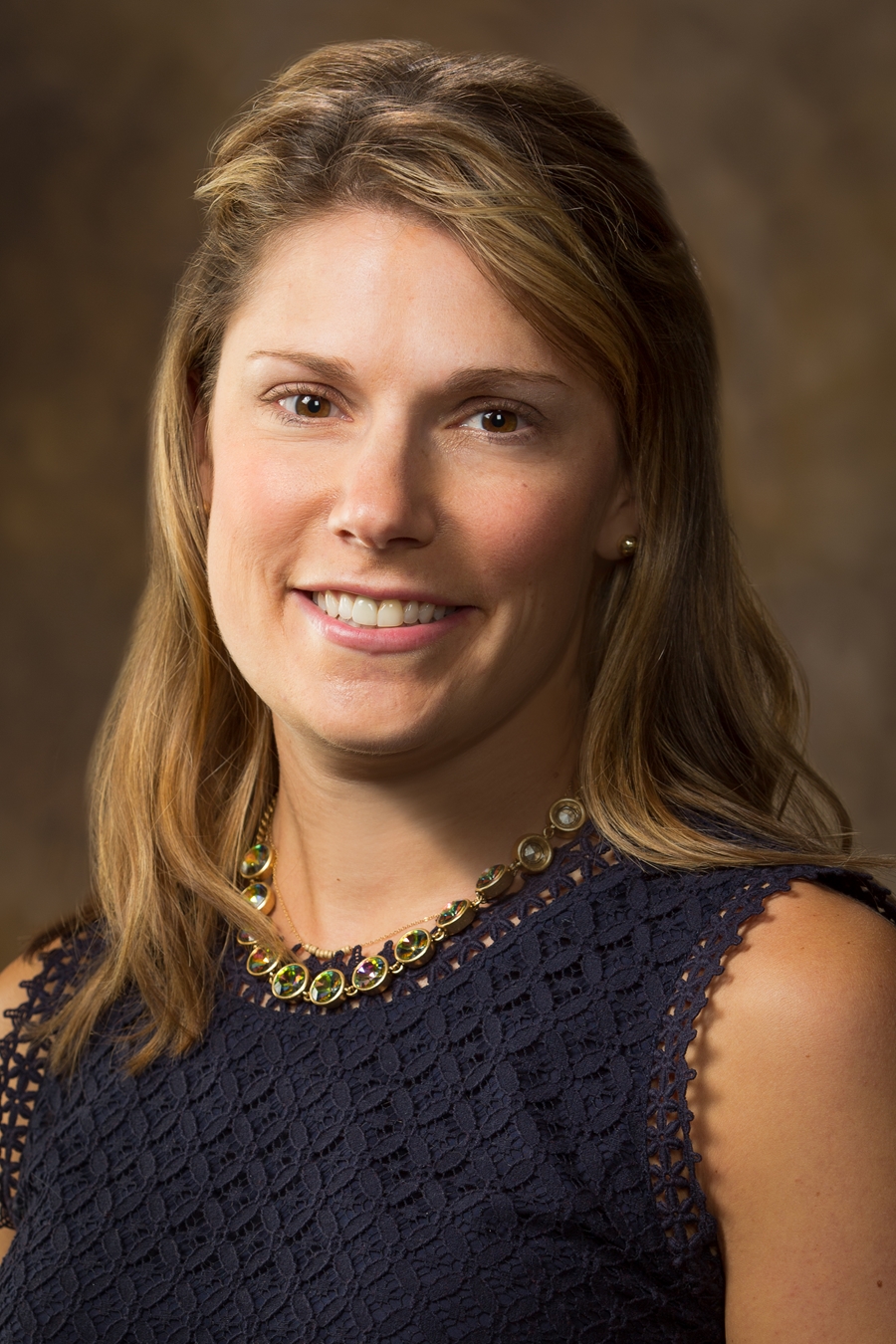Sarah Hernandez, assistant professor of civil engineering, has received the National Science Foundation Faculty Early Career Development grant, known as CAREER, for 2021. The NSF CAREER Award honors and supports early-career faculty who have displayed the potential to take up the mantle of academic role models in research and education as well as leading advances in the mission of their respective department and organization.
The NSF CAREER award, entitled “Towards Unbiased Long-Range Freight Planning Through Passive-Sensors and Workforce Diversity,” is being jointly funded by the Civil Infrastructure Systems program and the Established Program to Stimulate Competitive Research (EPSCoR). This half-million dollar award will provide five years of support to Hernandez’s research and development of freight-goods movement data at a resolution needed to make informed, data-driven decisions about long-range transportation infrastructure investment and policies; having a positive impact on the health, safety and success of the United States’ freight transportation industry.
Hernandez's research team tests prototype Lidar sensor configurations a highway locations with heavy truck traffic. |
 Hernandez uses active learning methods with traffic simulation to engage students in STEM outreach programs. |
Hernandez and her students develop learning modules for middle school students that introduce traffic engineering concepts such as the benefits and limitations traffic signals and roundabouts. |
The methods of collecting commodity flow data had remained essentially unchanged for the past thirty years, while the complexity of freight operations and supply chains has expanded. The research objective of this grant is to derive unbiased spatial and temporally-continuous commodity and industry information from passively collected, anonymized freight movement data; specifically for truck and waterborne freight. The work will enable researchers and practitioners to advance 20-40 year forecast models of freight movement, as well as formulate solutions to critical industry issues such as driver shortages, hours-of-service regulations and lack of safe, available parking.
Diversity in the transportation workforce is critical for ensuring that investment and infrastructure decisions reflect the unique needs of diverse travelers. An innovative service-learning education plan is integrated into the project to improve job attraction and retention rates of female transportation professionals and students. The project will promote women’s initial engagement and ongoing career satisfaction to help close the gender gap and ensure that diverse perspectives are routinely included in transportation planning processes.
Hernandez’s research will yield positive societal impacts by enabling transportation agencies to leverage increasingly available samples of passively collected freight movement data for timely, unbiased decision-making regarding infrastructure investment, environmental policy and economic development. This research will: 1) determine the extent to which activity patterns derived from passively collected mobile sensor data accurately predict commodity carried; 2) identify the extent to which vehicle body characteristics derived from roadway traffic sensors predict commodity carried; 3) establish and validate bias detection and quality measures for passively collected freight movement data.
The three-tiered plan implements train-the-trainer sessions during annual professional conferences where college students (tier 1) teach practicing transportation engineers (tier 2) how to deliver traffic sensor-themed K-12 (tier 3) outreach. The broader educational impacts of this project support NSF societal outcomes by promoting: 1) full participation of women in STEM, 2) development of a more diverse, globally competitive STEM workforce, and 3) increased partnerships between academia and professional organizations.
More information on Hernandez's research can be found on the Freight Transportation Data Research Lab website.
Topics
Contacts
Mike Emery, media specialist
Department of Civil Engineering
479-575-4954, maemery@uark.edu
Sarah Hernandez, assistant professor
Department of Civil Engineering
479-575-4954, sarahvh@uark.edu
